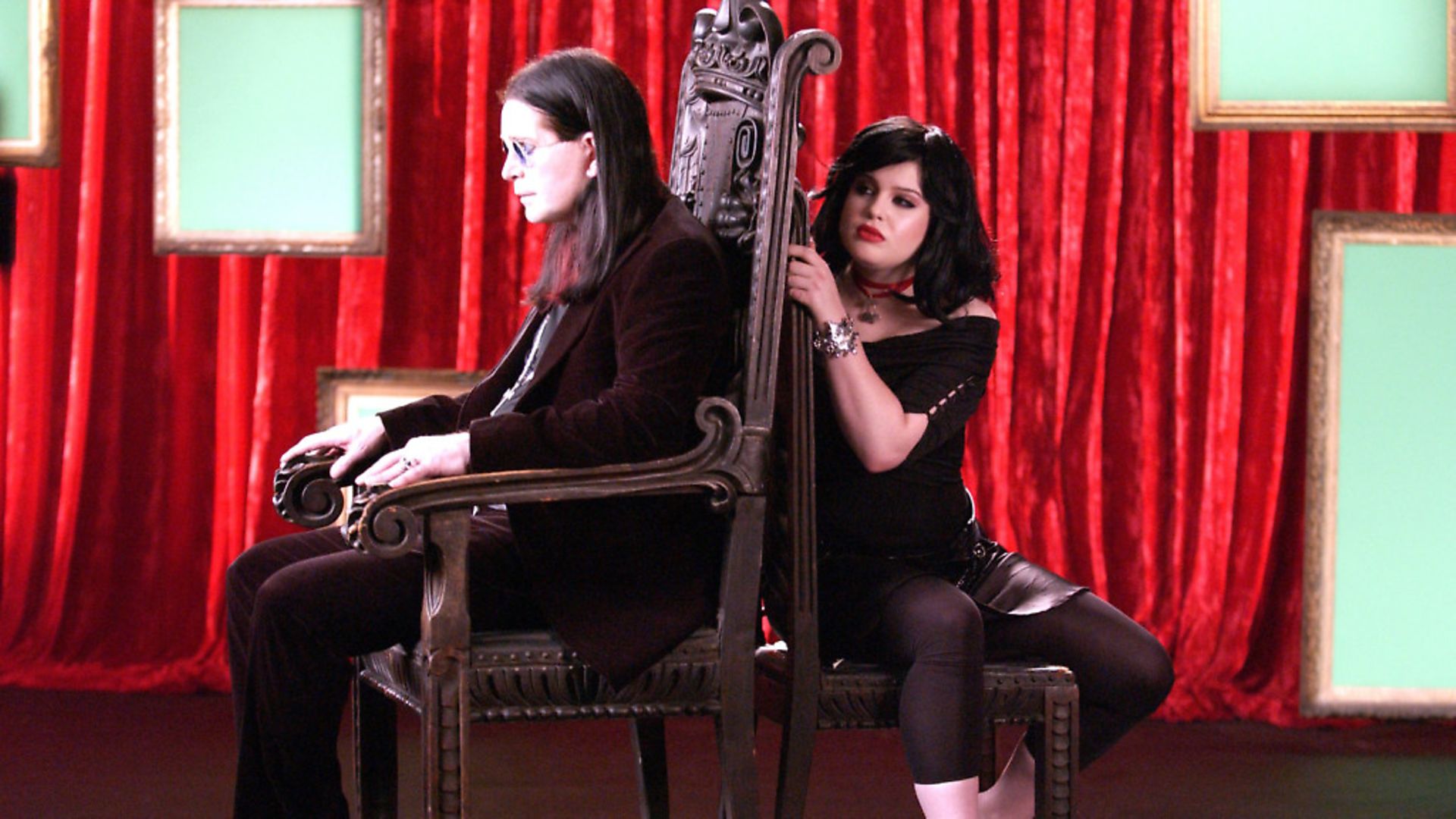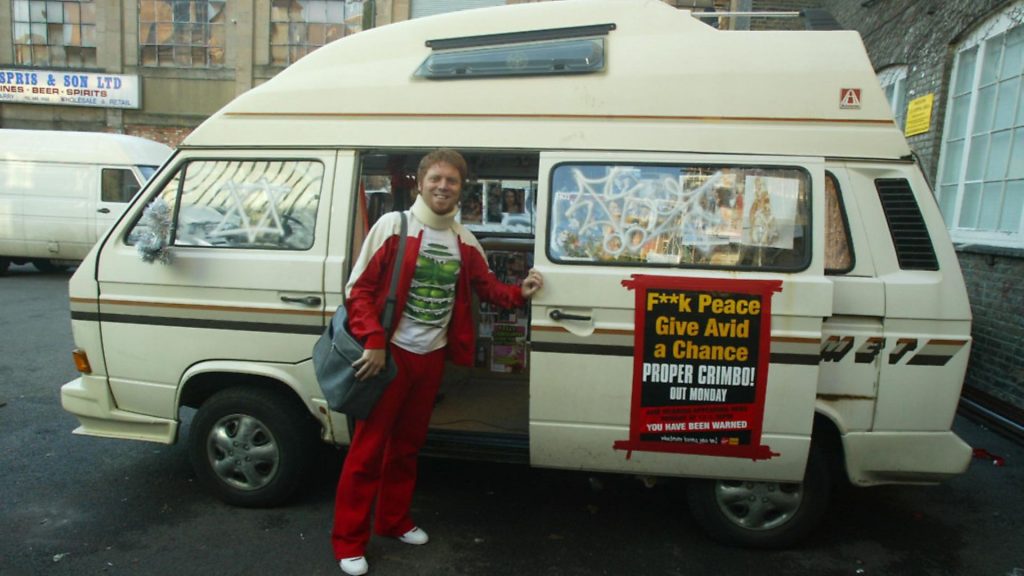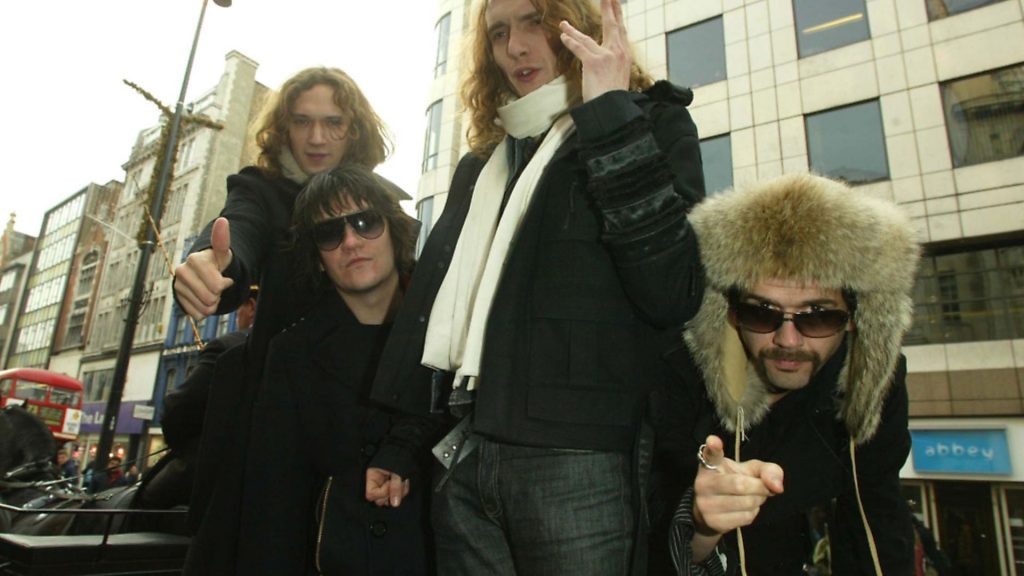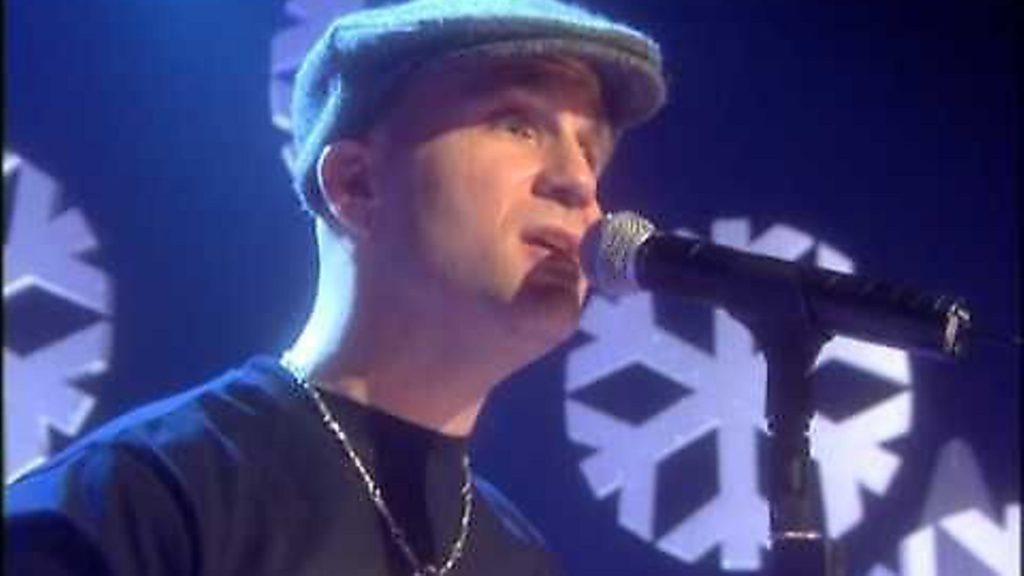
X Factor’s advent was shortly to end the traditional fight for the festive top slot. But it went out with a bang in 2003, says SOPHIA DEBOICK.

Christmas 2003 saw a chart battle only rivalled by that between Slade and Wizzard 30 years earlier and Wham! slogging it out against Band Aid in 1984.
Fisticuffs for the festive No.1 spot were back in vogue and the television talent show takeover of the charts was well under way. The put-up job of the previous Christmas, as Popstars: The Rivals winners Girls Aloud triumphed over One True Voice’s insipid Bee Gees cover signalled the shape of things to come, as Christmas No.1 became the almost sole preserve of The X Factor. But for now at least it was open season for the Christmas top spot.
As the launch of Freeview in late 2002 saw a slew of music video channels brought to UK screens, technicolour pop contrasted with newscasts of a bedraggled Saddam Hussein and an Iraq in flames as it turned into a tinderbox of insurgency. It was only going to get worse, and Britain’s mood was delicate. Just like in 1973, when the country was contemplating the imminent imposition of the Three-Day Week, and 1984, when the miners’ strike had descended into violence, threatening the economic and social fabric of the country, the pop charts offered the escapism the nation needed at Christmas 2003.
While the first Pop Idol, Will Young, had broken records with his winner’s single – Evergreen was not only the best-selling song of 2002 but the fastest-selling debut in UK chart history at the time, with eventual total sales approaching two million – series two winner Michelle McManus’ effort All This Time didn’t exceed a quarter of a million sales.

Inexplicably, the single wasn’t released in time for Christmas, only charting in the New Year, but with the final airing five days before Christmas, the song was firmly part of that year’s festive soundtrack. The way series two of Pop Idol panned out certainly didn’t bode well for the format. Having already denounced the contestants as ‘freaks and geeks’, judge Pete Waterman reportedly stormed off the set when McManus’ victory was announced, and few commentators saw her as a worthy winner, even if the public supported her. The show was duly killed off.
But even with the imminent demise of Pop Idol, it seemed like a golden age for the talent show. Popstars’ Girls Aloud followed up Sound of the Underground – No.1 well into 2003 – with three Top 3 hits. Will Young scored his fourth No.1, and began to establish a reputation for more-interesting-than-average music videos, with the Ivor Novello-winning Leave Right Now (its video was a continuous shot, single-take affair).
With the second series of Fame Academy running between July and October and the format’s first winner, David Sneddon, having a No.1 in late January with the self-penned Stop Living the Lie, the BBC were taking a slice of the action too. And while Popstars winners Hear’Say may have fizzled out after only four singles, ‘losers’ Liberty X were still going strong two years on, their Chaka Khan/Human League mash-up with Richard X, Being Nobody, deservedly getting to No.3 in March.
The talent show machine certainly made its presence felt on the Christmas Day chart. The Idols – the assembled talent of series two of Pop Idol – got to No.5 with Happy Xmas (War Is Over), the combination of a modern festive classic and a children’s choir proving irresistible. Young’s Leave Right Now was a place behind them. Popstars: The Rivals sideshow The Cheeky Girls were at No.15 with the execrable Have a Cheeky Christmas, Pop Idol runner up Gareth Gates was at No.24, while Girls Aloud (them again) were covering The Pointer Sisters’ Jump at No.20. But that was taken from the Love, Actually soundtrack which, what with The Sugababes’ Too Lost in You and Billy Mack, aka Bill Nighy, with the deliberately awful Christmas is All Around, took a large slice of the festive chart, indicating that the real battle for Christmas No.1 was being fought beyond the talent show bubble.

Pop veterans returned to set their sights on the festive top spot in 2003. Patron saint of the Christmas single, Sir Cliff Richard, followed up his three existing seasonal hits with a new effort, the pro-world peace message song Santa’s List. It was a flop by his standards, sitting at only No.13 on Christmas Day.
Meanwhile, Mike Batt came back to avenge Wombling Merry Christmas losing out to Mud in 1974 by writing Closest Thing to Crazy for Katie Melua, but it only scraped the Top 10, despite being loudly championed for Christmas No.1 by Terry Wogan. Ultimately, the fight for the Christmas pop crown came down to four singles and two opposing camps – the jokey and the emotional.
Leigh Francis’ Proper Crimbo took Bo’ Selecta!’s modus operandi of lampooning the barrel-bottom of popular culture to its logical conclusion. Its video stands as a weird relic of early 2000s Z-list celebrity culture, but it made No.4 for Christmas Day 2003.
The Darkness, who continued to ride the wave from September’s No.2 hit I Believe in a Thing Called Love found their Christmas Time (Don’t Let the Bells End) tipped for the No.1 spot, but it couldn’t break out of the No.2 position. The typically silly video and ‘bellend’ pun belied what was the best Christmas song to hit the charts in years.
In contrast, Ozzy and Kelly Osbourne’s Changes recast the Black Sabbath song into an emotionally manipulative father-daughter ballad. But all British efforts ultimately came to naught, as Changes – No.1 the week before Christmas – was pushed to No.3 by American unknowns Michael Andrews and Gary Jules. Their atmospheric Tears for Fears cover, Mad World, recorded for the Donnie Darko soundtrack, was a surprise hit, taking the festive top spot in a triumph of simplicity over marketing budget.
It was, in general, a great year for pop. In the post-Spice Girls world, women were ruling. Girls Aloud were the new queens, while the Sugababes had a No.1 with Hole in the Head in the autumn and Jamelia’s Superstar was a hit across Europe. Beyoncé’s solo debut LP Dangerously in Love went multi-platinum, while the video for the lead single Crazy in Love showcased a born icon.
Faux lesbianism was in, as Britney Spears and Christina Aguilera pastiched Madonna’s 1984 performance of Like a Virgin at the MTV awards. Playing brides to Madonna’s top-hatted groom, some on-stage kissing generated plenty of publicity (they each had an album to promote, after all), and Britney’s Me Against the Music, also featuring Madonna, repeated the Sapphic schtick in its unintentionally hilarious video. Meanwhile, Russian teenage duo t.A.T.u. had a huge global hit with All the Things She Said which also set them up as a couple for the purposes of garnering free publicity.
t.A.T.u, along with Evanescence’s monster hit Bring Me To Life, were indicative of Emo – or at least its flavour – taking hold in 2003, and that trend was joined by a strong strain of pop punk. Having made their debut the previous September, adolescent guitar-slingers Busted claimed the year as their own with four Top 3s, including two No.1s, while Avril Lavigne’s Sk8er Boi and I’m With You consolidated her grip on the title of pop punk princess.
Dance was also riding high, as Room 5’s Make Luv remade a disco classic, Oliver Cheatham’s Get Down Saturday Night, in Italian house tones, while German producer Tomcraft’s Loneliness put frenetic trance at the top of the UK chart. The breakthrough of the year, however, had to be for Black Eyed Peas, whose Where is the Love?, featuring an uncredited vocal from Justin Timberlake (himself consolidating his solo success with Rock Your Body), was a global mega-hit and the biggest-selling single of the year in the UK.
The launch of The X Factor in September 2004 saw Pop Idol judge Simon Cowell front his own format, and it spelled death for the old-fashioned British Christmas chart battle. In the 11 years until the show’s ratings really dropped off, seven X Factor winners claimed Christmas No.1, and only worthy charity singles – Band Aid 20, the Military Wives and Hillsborough fundraiser The Justice Collective – along with the Rage Against the Machine backlash campaign, were able to break the stranglehold.
For a decade no-one else bothered to even try. But The X Factor hasn’t had a festive chart-topper for three years, and this year’s winner Dalton Harris is only fourth favourite for the title. Could 2018 be the year the deadlock breaks and the riot of pop colour returns? In 2019, we’re going to need it.










